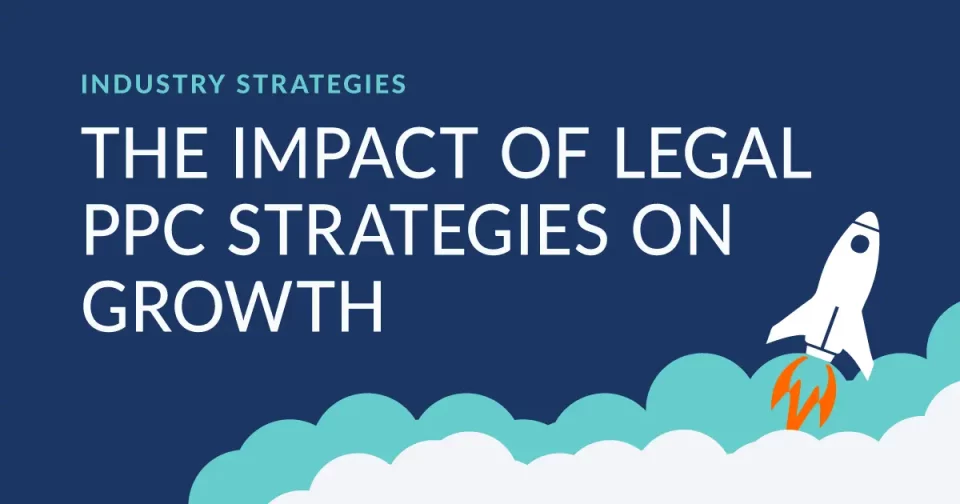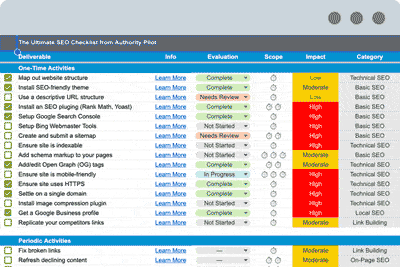
Are you struggling to attract clients and stand out in the competitive legal market? Pay-Per-Click (PPC) advertising offers a solution. This guide will take you through the essentials of crafting successful legal PPC strategies, addressing common challenges like budget management and competitive keywords. Discover how integrating local SEO and advanced technologies can significantly boost your online presence and client acquisition. Let’s unlock the potential of PPC to propel your law firm to new heights in the digital world.
Understanding PPC
Pay-Per-Click (PPC) advertising is a pivotal strategy for law firms seeking to enhance their online presence and attract more clients. It operates on a simple principle: you pay a fee each time your ad is clicked, effectively buying visits to your website. This approach is especially beneficial for law firms because it delivers immediate visibility to a targeted audience.
Why Legal PPC Strategies are Crucial
PPC allows law firms to display their services precisely when potential clients are searching for legal assistance. This immediate exposure is key in the legal industry, where decisions are often made swiftly. The customizable nature of PPC campaigns enables law firms to focus on specific areas like demographics, interests, and locations. This targeted approach ensures that your ads reach the most relevant audience, increasing the likelihood of attracting actual clients.
Moreover, PPC provides valuable data, helping law firms to continuously optimize their campaigns for better performance and return on investment. In the competitive legal market, legal PPC strategies can significantly boost a firm’s online presence, drawing in more clients and establishing a strong digital footprint.
Crafting Effective PPC Campaigns for Legal Services
Making a great PPC campaign for law firms is all about understanding three key things: who your audience is, how to write ads that grab their attention, and choosing the right keywords.
Target Audience Identification
The first step in crafting an effective PPC campaign is identifying your target audience. For law firms, this might include individuals facing specific legal challenges, businesses needing legal advice, or even other lawyers looking for specialized expertise. Understanding the demographics, interests, and behaviors of your target audience is crucial. It helps in creating campaigns that speak directly to the needs and concerns of those most likely to require your services. Whether it’s a family seeking a divorce lawyer or a startup needing legal advice, tailoring your approach to the specific audience will increase the relevance and impact of your ads.
Crafting Compelling Ad Copy
Once you know who you’re speaking to, crafting compelling ad copy becomes the next vital step. Your ad copy should highlight what sets your law firm apart – be it your experience, your winning track record, or your specialized knowledge. The key is to make your message clear, persuasive, and direct, with a strong call-to-action (CTA). This CTA should encourage potential clients to learn more, contact your firm, or take any other desired action. Remember, your ad copy is often the first impression potential clients will have of your firm, so making it count is essential.
Selecting Appropriate Keywords
Lastly, selecting the right keywords is the cornerstone of effective legal PPC strategies. For law firms, this includes terms directly related to the legal services offered, as well as broader industry-related keywords. It’s about striking the right balance between general and specific terms. High-traffic keywords might bring more visibility, but more specific, long-tail keywords often attract more qualified leads. This is because they align more closely with the specific legal services potential clients are searching for. Regularly reviewing and updating your keyword strategy is also vital to keep up with changing trends and search behaviors.
Budget Management in PPC for Law Firms
Effective budget management is an important consideration for all legal PPC strategies. It involves setting a realistic budget and consistently monitoring and adjusting your spend.
Setting a Realistic Budget
Creating a budget for your PPC campaign starts with understanding your firm’s financial capabilities and marketing goals. A realistic budget aligns with what you can afford and what you aim to achieve. Consider factors like the cost per click (CPC) in your legal niche, the competitive landscape, and the expected return on investment (ROI). It’s not just about how much you spend, but spending it wisely to get the best results. A balanced budget allows your firm to engage in effective marketing without overstretching resources.
Monitoring and Adjusting Spend
Running a PPC campaign isn’t a set-it-and-forget-it task. Regular monitoring is essential to ensure your budget is being used effectively. This means keeping an eye on the performance of your ads and making adjustments where necessary. If certain keywords or ads are costing more but not delivering results, it might be time to redirect your budget to more effective areas. On the other hand, if a particular campaign is performing exceptionally well, increasing its budget could capitalize on its success. The key is to stay flexible and responsive to the data, making informed decisions to optimize your PPC spend.

Talk Strategy with a Fractional CMO
SEO. More SEO traffic with higher conversion rates.
Paid Media. Paid strategies with clear ROI.
Content. Epic content that attracts and gets shared.
Measuring the Success of Legal PPC Strategies
Key Performance Indicators (KPIs)
KPIs like click-through rate (CTR), conversion rate, and return on ad spend (ROAS) help in measuring the effectiveness of legal PPC strategies. These metrics provide insights into how well ads are performing and where improvements can be made.
Utilizing Analytics Tools
Analytics tools play a vital role in tracking the performance of legal PPC strategies. They provide data that can be used to optimize campaigns for better performance.
Takeaway: Managing your PPC budget effectively requires setting realistic expectations and being vigilant in monitoring and adjusting your spend. By doing so, law firms can make the most of their PPC campaigns, ensuring they get the best possible returns from their investment.
Common Challenges with Legal PPC Strategies
Navigating the intricacies of PPC for law firms comes with its unique set of challenges. Two of the most significant are dealing with competitive keywords and adhering to legal advertising regulations. Understanding and addressing these challenges is key to creating successful PPC campaigns.
Some keywords are very popular and expensive. To deal with this, it’s smart to use a mix of popular and more specific keywords related to your legal services. These specific keywords might not be as commonly searched, but they can bring in clients who are looking exactly for what you offer. Regularly updating your keywords based on trends is also an important consideration in staying competitive.
Adhering to Legal Advertising Regulations
Another important challenge is making sure your ads follow the strict rules for legal advertising. Your ads need to be clear, honest, and must not make promises about results. Including disclaimers and respecting client confidentiality rules are also key. Staying up-to-date with these rules helps your firm avoid legal issues and keeps your advertising trustworthy.
Takeaway: Successful legal PPC strategies require you to be smart with keywords and careful to follow the legal advertising guidelines. This approach will help your law firm create effective and compliant PPC campaigns.
Leveraging Local PPC Strategies
For law firms, local PPC strategies are incredibly effective in reaching the right audience in your community. Focusing on local SEO and localized ad targeting can significantly enhance your firm’s visibility to potential clients in your area.
Importance of Local SEO
Local SEO is all about making your law firm visible to people searching for legal services in your area. When someone searches for a lawyer nearby, you want your firm to show up at the top of those search results. Integrating local keywords, like the name of your city or neighborhood, into your PPC campaigns can make a huge difference. It’s not just about being seen; it’s about being seen by the right people – those who are in your geographical area and are more likely to seek your services. A strong local SEO strategy ensures that your firm is accessible to those who need it most, right in your community.
Localized Ad Targeting
Localized ad targeting takes your local presence a step further. It allows you to tailor your PPC ads to target potential clients in specific locations. You can customize your ads based on local events, trends, or even the unique legal needs of your community. For example, if you’re a family law attorney in a city with a high rate of divorce, your ads can specifically address concerns and questions common in that area. This targeted approach not only increases the relevance of your ads but also makes your marketing efforts more cost-effective by focusing on the area where you have the highest potential for client acquisition.
Takeaway: Leveraging local PPC strategies through strong local SEO and localized ad targeting is crucial for law firms. It helps to connect with the community, making your services more visible and relevant to those who are most likely to need them. By focusing locally, you can build a stronger presence in your area and grow your client base more effectively.

The Ultimate Legal SEO Checklist
Get your copy of our Ultimate Legal SEO Checklist for 2024. Unlock tips, tricks, and tools to rocket your website's search engine rankings. Whether you're a seasoned pro or just starting, this checklist is your secret weapon.
Integrating PPC with Other Marketing Strategies
Combining PPC with other marketing approaches can significantly enhance the overall effectiveness of your law firm’s marketing efforts. Focusing on synergies with SEO and harnessing the power of social media are two key strategies that can amplify your reach and engagement.
Synergy with SEO Efforts
SEO and PPC are a formidable pair. SEO is about getting your website to show up naturally in search results over time, while PPC gives you immediate visibility. Using them together means your firm shows up more consistently in searches, both as paid ads and organic results. For example, the keywords that work well in your PPC ads can also help improve your SEO strategy. With the right approach, your law firm can achieve greater online visibility and client engagement.
Utilizing Social Media
Social media is a great place for PPC ads. Platforms like Facebook and LinkedIn let you target ads to specific groups of people. This way, you can reach a wider audience in a way that feels more personal. For instance, if your firm specializes in business law, you can target ads to business owners on LinkedIn. Social media doesn’t just help you reach more people; it allows you to connect directly with potential clients.
Takeaway: Using PPC alongside SEO and social media can make your marketing more powerful. It helps your law firm get seen more online, attracts more people, and helps you connect with the right clients.
Future Trends in Legal PPC
As the legal industry continues to evolve, staying ahead of future trends in PPC is essential for law firms to maintain a competitive edge. Two key trends to watch are the rise of emerging technologies and the use of predictive analytics.
Emerging Technologies
The world of PPC is rapidly changing, thanks in part to emerging technologies. One exciting development is the integration of artificial intelligence (AI) and machine learning. These technologies can significantly enhance PPC campaigns by automating tasks like bid management and keyword research. They can also provide deeper insights into ad performance and user behavior. For law firms, this means more efficient and effective campaigns, as AI can quickly analyze large data sets to identify trends and optimize strategies in real-time. As these technologies continue to advance, they will offer even more innovative ways to target and engage potential clients.
Predictive Analytics in PPC
Predictive analytics is another trend set to transform the PPC landscape. This involves using historical data to forecast future trends and behaviors. For law firms, predictive analytics can be a game-changer in understanding how potential clients might respond to different types of ads, keywords, or messaging. By analyzing past campaign data, law firms can predict which strategies are likely to be most successful and adjust their PPC campaigns accordingly. This proactive approach can lead to more targeted and effective advertising, ensuring that law firms stay one step ahead in a competitive market.
Takeaway: The future of PPC for law firms is exciting, with emerging technologies and predictive analytics paving the way for more sophisticated and successful campaigns. Embracing these trends will not only enhance the effectiveness of PPC efforts but also ensure that law firms remain at the forefront of digital marketing innovation.
Conclusion
In conclusion, legal PPC strategies are a journey full of potential. It’s about creating ads that speak to your clients, managing your budget wisely, and keeping up with legal advertising rules. Don’t forget the power of local focus and integrating your PPC with other marketing such as our SEO Management and social media. And with exciting new trends like AI and predictive analytics on the horizon, the future of PPC is looking bright. By staying open to new ideas and adaptable, your law firm can use PPC not just as an advertising tool, but as a key part of your growth and success online.







